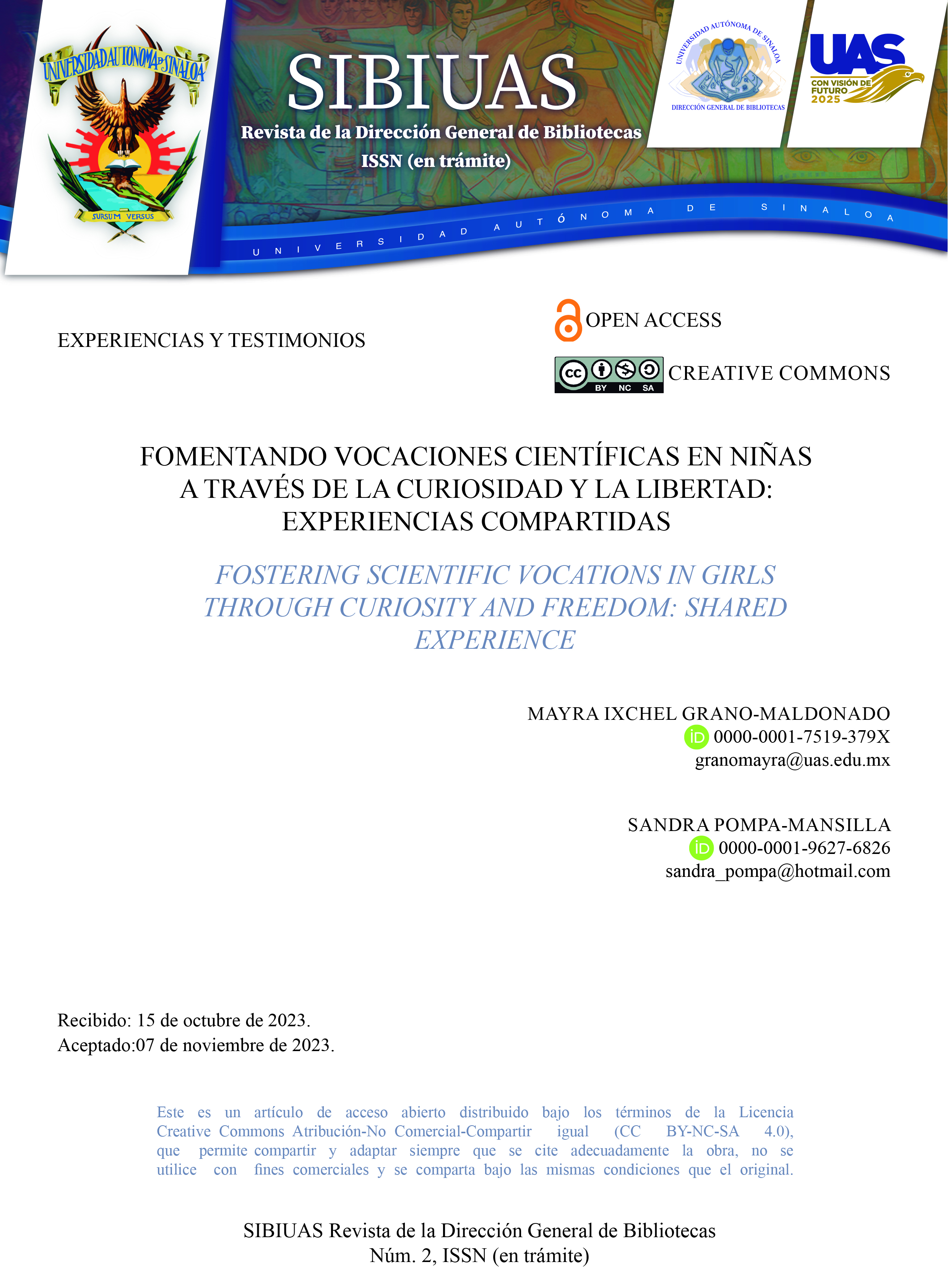Fostering scientific vocations in girls through curiosity and freedom: shared experience
Keywords:
Scientific education, Child development, Montessori method, Parasitology, Biological sciencesAbstract
freedom of each child to direct their efforts towards their interests. The shared experience takes place in the Aquatic and Environmental Parasitology laboratory at CA-UAS-1624, located in the Faculty of Marine Sciences in Mazatlán, Sinaloa. This laboratory has sensitized the daughters of student mothers to scientific topics through practical experiences, thereby strengthening the work of scientific outreach. Testimonials from teachers-researchers who have participated as guides in the project underscore the importance of fostering freedom to express concerns, curiosity, and a guided approach to the scientific world. They highlight the innate tendency of infants to explore and investigate. Within the laboratory, girls aged 3 to 17 interact directly with marine organisms, exploring the fascinating world of parasites. The article emphasizes how the use of tools, equipment, and microscopes enables girls to observe and manipulate structures such as the articulated legs of crustaceans, remove lice from the surface of fish, and explore organs such as the liver, intestine, gonads, gills, and spleen. This includes the collection and counting of intestinal parasites, as well as understanding the forms and adaptations of parasitic life. It is hoped that these experiences will inspire those interested to study life from a comprehensive perspective of biological sciences, aspiring to become biologists and to continue exploring and discovering in this fascinating field.
Downloads

Downloads
Published
Issue
Section
Categories
License
Copyright (c) 2024 SIBIUAS Revista de la Dirección General de Bibliotecas

This work is licensed under a Creative Commons Attribution-NoDerivatives 4.0 International License.




